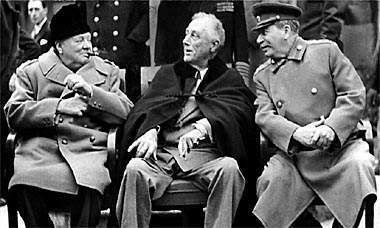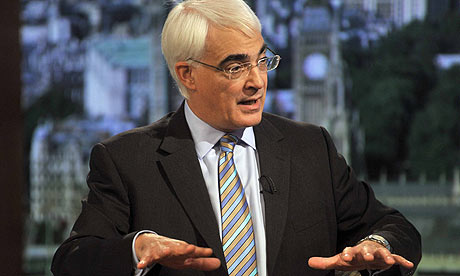UN PACTO ENVENENADO
Pero ellos respondieron: ¿Había él de tratar a
nuestra hermana como a una ramera?
Genesis 34:31 (Casiodoro de Reina, 1569)
Every October, on Columbus Day, pundits ponder the significance of the voyages of Christopher Columbus to the New World and whether, in fact,
The scientific facts are so clear it is perplexing that the point is argued at all. When
FEDER, K.L. Frauds, Myths, and Mysteries: Science and pseudoscience in Archeology. Mayfield Publishing Company.
1492 (Christopher Columbus sighting land)
No sólo existe la memoria histórica. El Clima también guarda en su memoria por lo menos los acontecimientos más recientes. Con El Niño en plena fase de crecimiento y una deprimida temporada de huracanes, es difícil determinar con precisión si las aguas llegarán apenas a tiempo -y en cantidad suficiente-, para aliviar un poco la contingencia climática antes del fin de la época de lluvias en
Justo al principio de este año la vida dio un drástico vuelco para uno de los sobrinos de
_ ¿Y qué pasó?
_ Es que el compa que traía atrás se espantó cuando nos rebasó un trailer, y me desequilibró toda la moto; ya no pude controlarla.
_ ¿Y a qué iban a Zumpango? ¿Qué ya se habían bebido todo el parque de Chilpo?
_ Pues la neta sí, andando así, y con cierta clase de compañías, uno se come el mundo. No te voy a decir que andábamos bien, pero esta vez ni a eso íbamos.
_ ¿´Tonz?
_ No, pus mi cuate, ese día me pidió ese día que lo recomendará en la constructora porque la cosa está muy cañona.
_ Así es, aún para uno bueno y sano esto está del cocol.
_ Yo no me voy a quedar así, me quiero regresar a estudiar. No me quiero achicopalar porque si no me muero pronto.
_ ¿Ya has pensado qué?
_ No mucho, ¿tú qué me recomiendas?
_ Pues lo primero que se me ocurre es alguna actividad en la que no necesites andar de allá pa´ acá. Creo que los que se reciben en informática y esas ondas todavía son muy solicitados.
_ Y en eso puedes empezar con la carrera técnica y comenzar a trabajar, ¿no?
_ Sí, creo que sí. Terminando de técnico puedes comenzar a chambear y seguir estudiando al mismo tiempo la licenciatura.
Echarse el viajecito a Lomas Verdes y de regreso en un solo día nos ha dejado exhaustos, y con un humor de perros a todos nosotros.
_ No manches, bato. Aguanta vara, ya mañana te vas temprano, al fin entras hasta en la tarde.
_ Nel, wey. Yo me voy ahorita.
_ Tranquilo, carnal. La neta yo no quiero perder la otra también. Checa, la jefa está muerta también.
_ ¡Ya vámonos, má!
_ ¡Ah, qué viento sopla! No la jodas, loco.
_ Déjalo que se vaya, Marco.
No pudimos convencerlo y… se fue.
Lamentablemente no se puede pactar con cualquiera. Do you think you can tell heaven from hell?
¿Realmente cree usted posible conciliar la incontenible aspiración transformadora y el aletargante status quo? ¿Deveras pretende su merced, hipotecar en forma vitalicia su fuerza de trabajo, con tal de mantener a una inservible clase político-empresarial? ¿Apoco son intercambiables el Spring Break en Miami por los interminables turnos frente a la fresadora?
Policia Fresa- Best Commercial
It seems that only the politicians haven´t seen that we already reached the turning point, or to be even more precise the point of no return. “Nuestros bonos por productividad son inamovibles, ¡ah, pero eso sí!, hace falta una exhaustiva revisión de las prestaciones laborales que conquistaste cuando te mangoneaban los rojillos.”
¿Queda verdaderamente acaso algo más que estirar? Mientras los análisis macroeconómicos pintan un promisorio futuro para los pisos de remates de las principales bolsas de valores del mundo (las subdesarrolladas imitaciones bien pueden largarse mucho al carajo), el desempleo se agudiza en la base de la pirámide social.
El remedio a esta desesperante situación actual solo puede ser acordado en las bases; porque es justo ahí donde, como en los indisolubles lazos familiares, se comparten los mismos intereses de clase. Sólo hay una fuerza capaz de desafiar to that gluttonous economic black hole: you. Yes, you the tireless working class.
Ya que aún no hemos sido derrotados en esta interminable guerra desarmada, supongo que se pacta para ganar. Que alguien me convenza de que es victoria nuestra, alargar el actual sistema económico que ha incrementado la aberrante desigualdad social en nuestro país. Ojalá algún erudito me explique la razón por la que esperaría resultados satisfactorios de un esquema, que nos ha empobrecido con una empecinada consistencia que seguramente no envidian nuestros socios comerciales norteamericanos.
En la cumbre se acuerda una solidaridad criminal que propone extender el éxito económico, well not down here, I´m afraid, buddy. Deception, delusion or just plain lies, everything is permitted on this side to pimp all those pretty women of our backyard.
By my side, i.e., your side, are we all still waiting for a miracle? A leader that fulfills our wildest dreams.. one of us. Is that possible without a fight? Without pushing our everyday necessities up? Si usted como yo desea, aunque no sea lo expedito que se requiere –we probably are gonna need to keep on fighting… restlessly-, una distribución equitativa de la riqueza nacional, entonces usted y yo, sin duda alguna, pactaremos un plan conjunto que al final logre en verdad cambiar nuestro México. AL TIEMPO.
M@RCOnvenio;
Iguala de La Independencia, Gro(ndona);
21/08/09.
… pus, vamos pensando en la confiscación.
El rancho ´La estancia´ de Vicente Fox
PREGUNTAS SIN RESPUESTA:
¿Qué pensarán los brasileiros de un mandatario que en la misma semana, por un lado justifica el alquiler de las bases militares estadunidenses en territorio colombiano, y por otro busca un acuerdo estratégico entre PEMEX y PETROBRAS?
SPECIAL REQUESTS:
Pelen bien los oclayos, y más temprano que tarde comprobarán que very deep inside no hay un conflicto irresoluble entre el expresidente de los blanquiazules (que en Tampico utilizaba a Uruguay como uno de los ejemplos a seguir por su actual esquema económico), y el primer mandatario que recién ha visitado a quizás su único cuatacho en nuestro barrio latinoamericano. At the end of the day, La Sagrada Familia y los (¿ex?)doctrinarios comparten un mismo fin supremo, que es capaz de conciliar cualquier superficial desavenencia
Un reconocimiento público al excelente concierto in memoriam de esta semana.
Morte a Venezia / Death in
SITIO INTERNÉ DE
Der Spiegel International Version:
http://www.spiegel.de/international/
Germany
ENCORE IMPERIAL:
http://marcosalas.spaces.live.com/blog/cns!BDFACA893D7CA374!1566.entry
http://www.4shared.com/file/126689700/7c0577c7/un_pacto_envenenado.html











